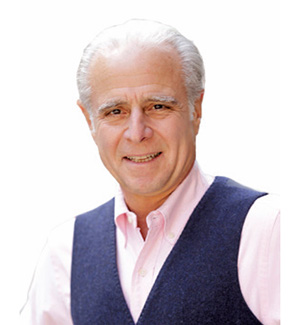
Steve Elias, MD, director of the Center for Vein Disease at Englewood Health, offers insights into vein disease, a highly treatable condition that can adversely affect a person’s quality of life.
Summer is a great time to think about your veins. Out for a round of golf? Eighteen holes or nine, you might find your legs starting to feel tired and heavy as the round goes on, though they never used to. Tennis? Notice a protruding vein in your leg while wearing shorts or skorts? As we get older, we are at increased risk for vein disease, especially if we have a family history of varicose veins.
Main risk factors for vein disease include:
- family history of vein disease
- multiple pregnancies
- job that requires a lot of standing (such as that of teacher or police officer)
- obesity
One of my patients is in her 80s and loves folk dancing. She recently came to my office complaining, “My legs are killing me after dancing.” Patients often tell me they feel good in the morning, but as the day goes on, their legs feel tired, heavy, and achy. When you have poorly functioning veins, the more you stand or sit during the day, the more symptoms you have, and as the day progresses, the worse the symptoms tend to become.
Symptoms from vein disease can interfere with a person’s ability to engage in the activities they enjoy, impacting their quality of life. The good news is that the vast majority of problem veins can be treated, regardless of how big, small, curvy or straight. At Englewood Health, we have a full range of options and expertise to treat any type of vein disease, whether in the leg, arm or pelvic area.
Three main reasons people see a vein doctor:
- They have symptoms that affect their quality of life.
- They do not like how their leg looks.
- They have had complications from vein disease—blood clots, phlebitis, ulcers.
Many people live with their varicose vein symptoms, making accommodations in their daily life. Compression stockings can help reduce symptoms temporarily, but they don’t treat the underlying cause. Elevating the feet at night helps return the blood to the heart, reducing swelling and pressure on the lower legs and ankles. However, most patients find that once their damaged veins are treated, their leg feels lighter and more energetic.
How do veins work?
Veins have one-way valves (check valves) that keep the blood flowing back up the legs toward the heart. When the valves in the legs fail, blood leaks back, pooling in the legs and putting pressure on the veins. Over time, the vein can weaken and bulge, often resulting in visible varicose veins, as well as significant symptoms. Varicose veins can lead to complications such as blood clots, which can cause phlebitis, or inflammation. They can also cause ulcers (sores) that do not heal properly. Swelling in one leg, with or without a history of blood clots, may be caused by narrowed or blocked veins in that leg or in the pelvis.
What are the symptoms of vein disease?
- heaviness
- achiness
- swelling
- throbbing
- itching
Are there any new treatments for vein disease?
Today, virtually any type of vein disease can be treated. Minimally invasive treatment for vein disease has been around since the late 90s and early 2000s, and treatments keep improving.
Today, what I tell most patients is that whatever procedure you have, there will be no cuts or two or three incisions, no stitches, just local anesthesia and a few needle sticks—and the whole procedure takes about 30 minutes. You’ll walk in and out, and within a day or two, you’ll be back to just about anything you want to do.”
The biggest advances in vein treatment in the past few years are new technologies that require fewer needle sticks and provide even safer ways of closing off veins, including ClariVein®, a device; Varithena®, an injectable foam; and VenaSeal™, an adhesive.
Helping Patients Get Back to the Activities They Love
What I find most rewarding about being a vein disease specialist is that vein disease really affects patients’ quality of life and their ability to function normally. Many of my vein patients are active playing golf and tennis, dancing, walking or just getting out to see friends and family. Let’s face it, none of us is going to live forever. We all want the best life we can have while we are alive. It is very satisfying to help these patients with vein disease get back to enjoying the activities they love.
By Steve Elias, MD
Steven M. Elias, MD, is director of the Center for Vein Disease at Englewood Health and a member of the Englewood Health Physician Network.













